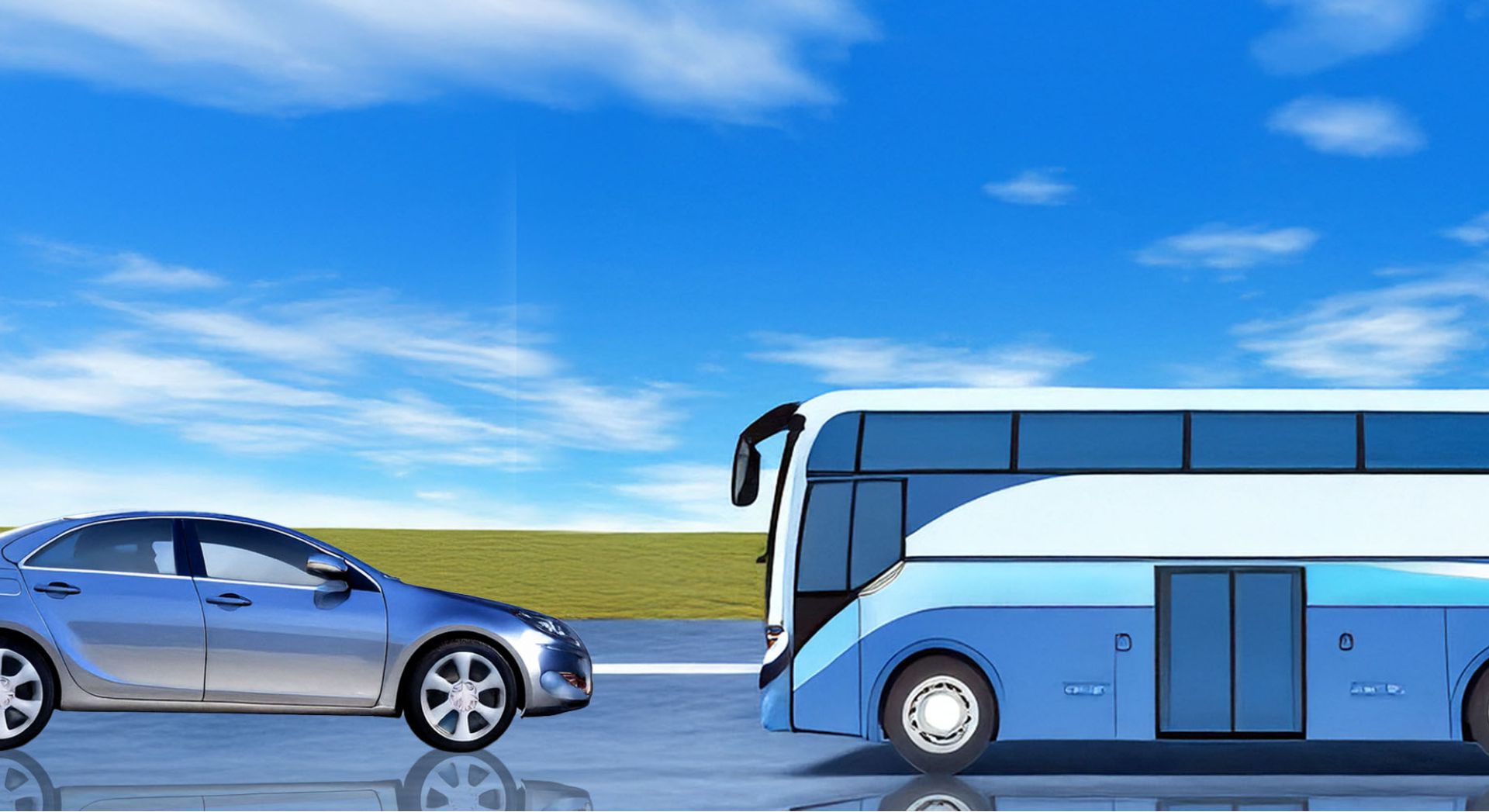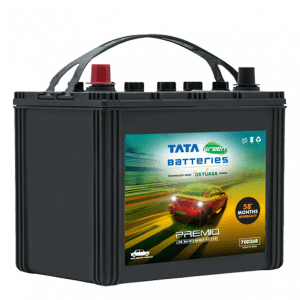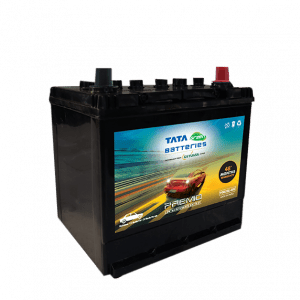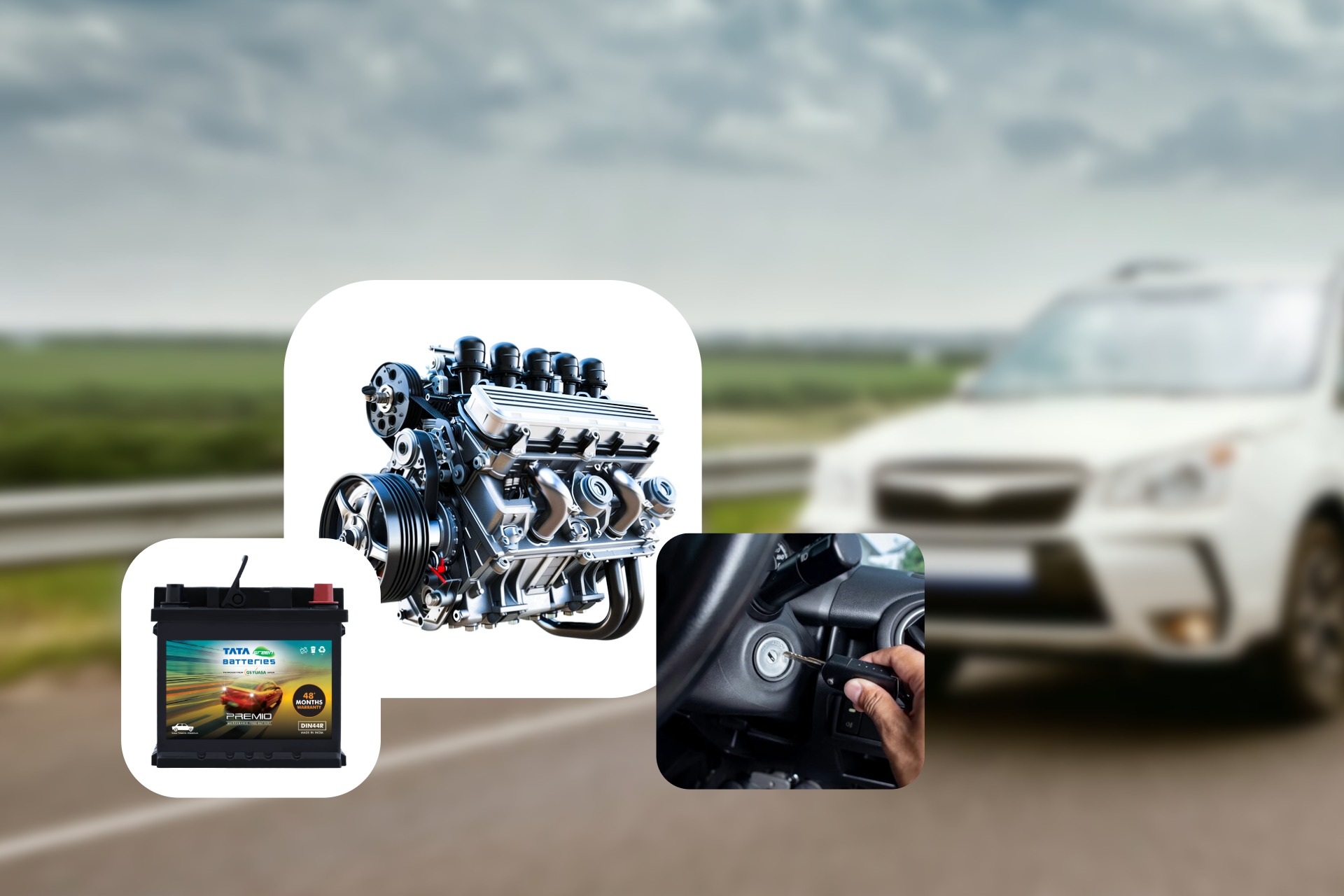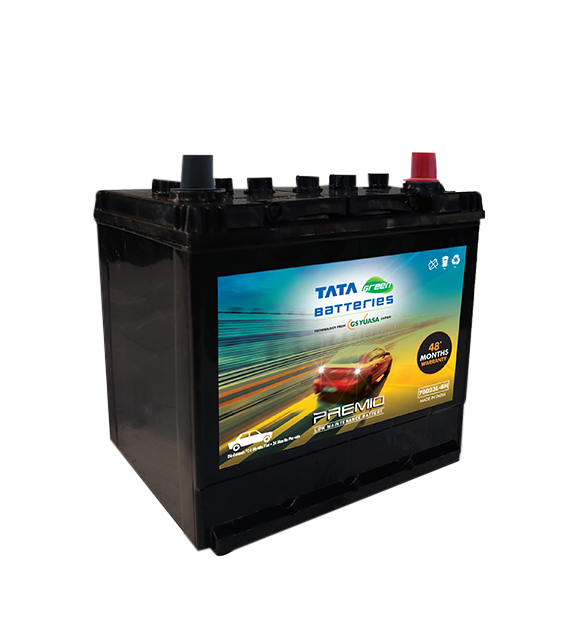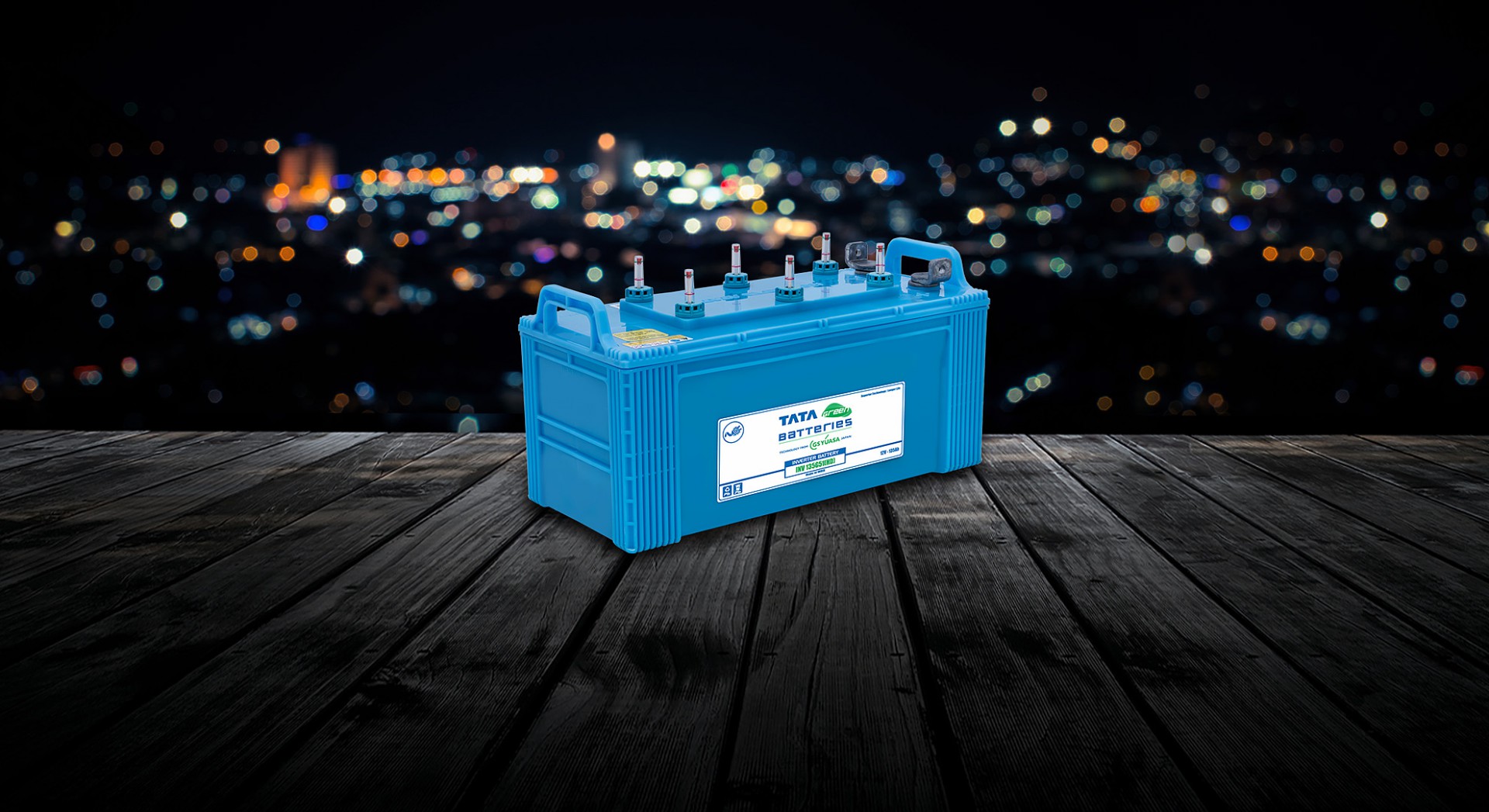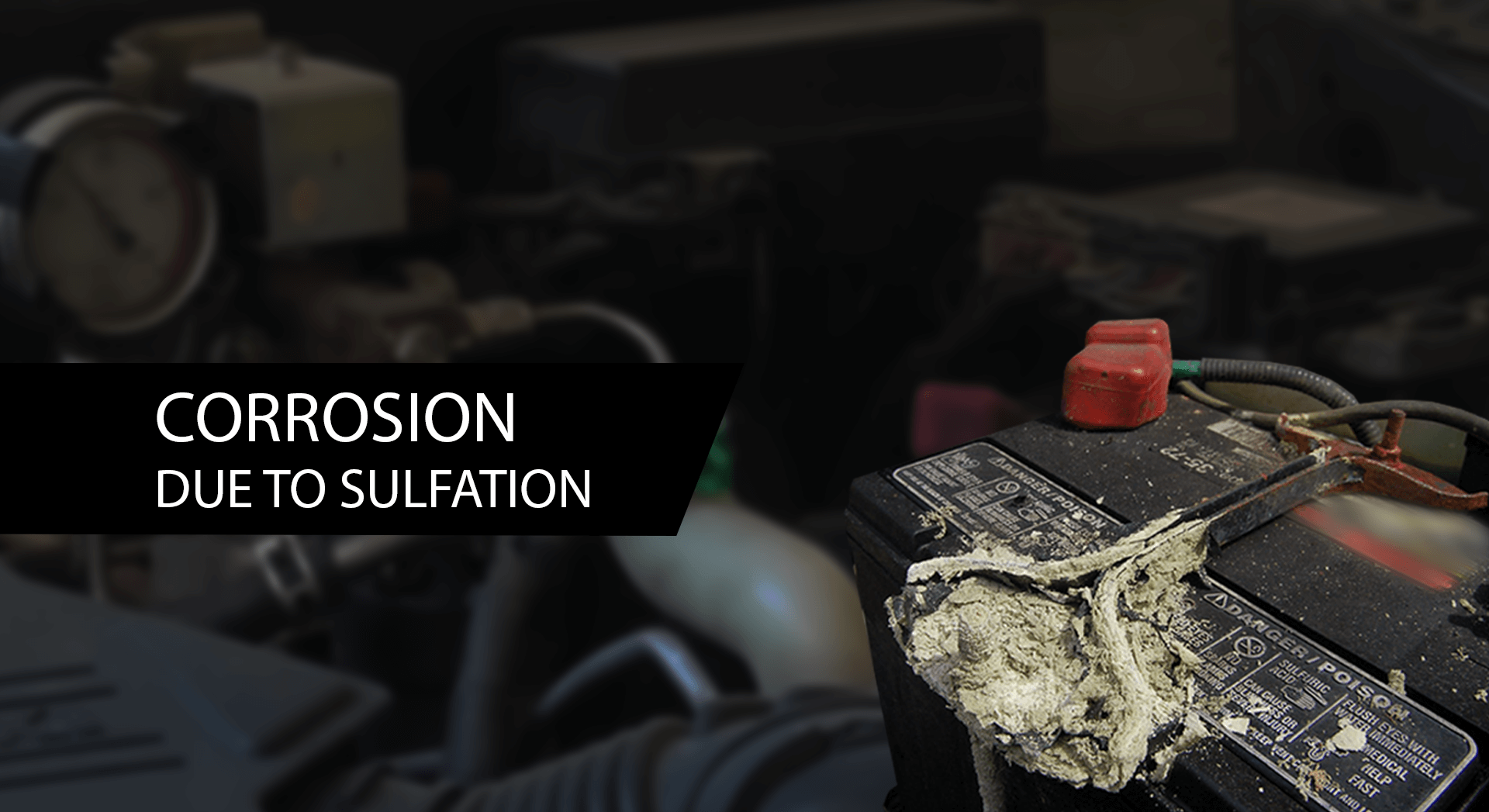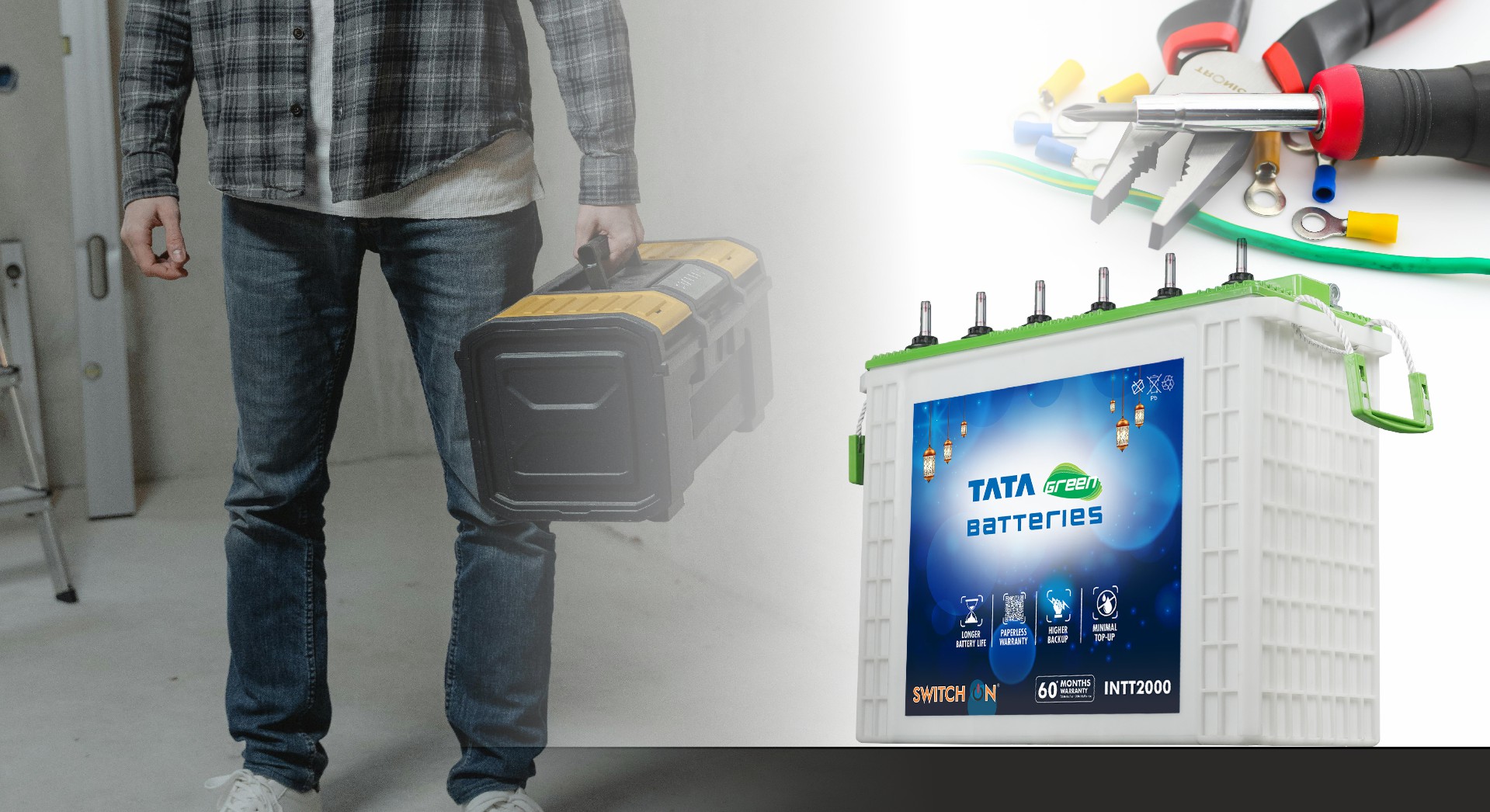Whether you’re powering a compact car, a delivery truck, or a heavy-duty machine, the battery under the cover is more than just a source of energy; it’s the heartbeat of your vehicle’s electrical system. But not all batteries are created equal. One of the most common questions we get is – What’s the difference between a car battery and a commercial vehicle battery?
On the surface, all batteries might look similar; for instance, they’re box-shaped, come with terminals and store electrical energy. However, upon closer examination, you’ll discover significant differences in design, performance and application. This blog will help you understand the primary distinction between a car battery and a commercial vehicle battery and why choosing the right one is crucial for your vehicle.
What is a Car Battery?
A car battery is specifically designed for passenger vehicles such as sedans, hatchbacks and SUVs. Its main role is to provide a short burst of high power to start the engine. Once the engine has started running, the alternator takes over. The alternator then powers the electrical systems and recharges the battery.
Key Functions of a Car Battery:
- Starts the car engine
- Powers headlights, infotainment systems and interior electronics when the engine is off
- Stabilises the voltage for the entire electrical system
Car batteries are optimised for quick, high-power discharges rather than long, sustained energy delivery. They are compact, lightweight and built to serve everyday driving needs.
What is a Commercial Vehicle Battery?
On the other hand, a commercial vehicle battery is designed for larger and heavier vehicles, such as trucks, buses, tractors, construction equipment, and delivery vans. These vehicles not only require more power to start but also depend on the battery to support longer, heavier electrical loads over extended periods.
Key Functions of a Commercial Battery:
- Cranks large diesel engines that need higher starting power
- Supports power-hungry components like ACs, refrigeration units, hydraulic lifts, GPS tracking systems, etc.
- Delivers high reserve capacity and deeper cycles
Commercial batteries are built for rugged performance, longer life and higher vibration resistance to suit tough road and worksite conditions.
The Primary Distinction: Power Demand & Durability
If you’re looking for a simple answer, here it is:
A car battery is designed for short, high-power bursts to start smaller engines, whereas a commercial battery is built to handle higher power demands, more extensive electrical loads and tougher operating conditions over longer durations.
-
Size and Capacity
- Car Battery: Typically ranges from 35Ah to 75Ah (Ampere-hour) capacity and upto 100Ah in premium cars and SUVs. They’re compact and lightweight, making them ideal for smaller engine compartments.
- Commercial Battery: Can go from 75Ah up to 200Ah or more, with significantly larger casings and heavier plates to support high power requirements.
Why it matters: The capacity determines how long a battery can deliver power. Heavy-duty commercial vehicles simply demand more.
-
Cranking Power (CCA)
- Car Battery: Delivers Cold Cranking Amps (CCA) suitable for gasoline engines—usually between 300 and 600 CCA.
- Commercial Battery: Offers higher CCA ratings, often 800 to 1200 or more, especially for large diesel engines that are harder to start.
Why it matters: In cold weather, diesel engines and commercial vehicles require much more power to crank. A car battery just won’t cut it.
-
Construction and Plate Design
- Car Battery: Uses thinner lead plates, designed for fast discharges and lighter use.
- Commercial Battery: Features thicker, reinforced plates to withstand:
- Vibration
- Long engine idling
- Frequent starts and stops
- Deep discharging cycles
Why it matters: Commercial vehicles often run in extreme environments. The battery must be able to withstand stress without internal damage.
-
Vibration and Shock Resistance
- Car Battery: Built for smooth city and highway rides.
- Commercial Battery: Reinforced for rough terrain, constant movement and heavy-duty suspension systems.
Why it matters: Unpaved roads and job sites can destroy a weaker battery from inside out. Tata Green commercial batteries are tested for rugged use.
-
Cycle Life and Reserve Capacity
- Car Battery: Optimised for occasional deep discharge but primarily used for short cycles.
- Commercial Battery: Designed for deep cycling and has a higher reserve capacity, meaning it can power systems like tail-lift, cabin lights, or air brakes for longer, even when the engine is off.
Why it matters: For trucks or buses that spend hours idling or stopped, the battery becomes the sole power source.
-
Usage Environment
- Car Battery: Works well in controlled urban and suburban environments.
- Commercial Battery: Must function in dusty, rainy, icy, or high-temperature zones, often without regular maintenance.
Tata Green Batteries are engineered with heat and corrosion-resistant components, making them ideal for India’s diverse climates.
-
Maintenance Needs
- Car Battery: Available in both maintenance-free and low-maintenance versions.
- Commercial Battery: Usually requires regular checks for water levels, terminals and overall condition, but maintenance-free versions are now increasingly available from Tata Green.
Tip: Always follow the battery care instructions provided to extend life and performance of your battery
Tata Green Batteries: The Right Choice for Every Need
Whether you’re looking for a reliable car battery for your family or a commercial vehicle battery for your CV, Tata Green Batteries offers a range of batteries tailored to every need, from cars to commercial vehicles.
Why Tata Green Batteries?
- Backed by advanced GS Yuasa technology
- High CCA ratings for better cold-weather starts
- Maintenance-free or low-maintenance options for all categories
While both car and commercial batteries serve the same purpose .i.e.to power your vehicle; they’re designed with different needs in mind. A car battery is perfect for light use and smaller engines, whereas a commercial battery is your powerhouse for larger vehicles, tougher conditions and longer durations.
Understanding this difference ensures you never underpower your vehicle or overpay for features you don’t need.
So next time you’re choosing a battery, think beyond size. Think about purpose, performance, and durability. Remember no matter what you drive, Tata Green Batteries has the perfect power solution for you.

